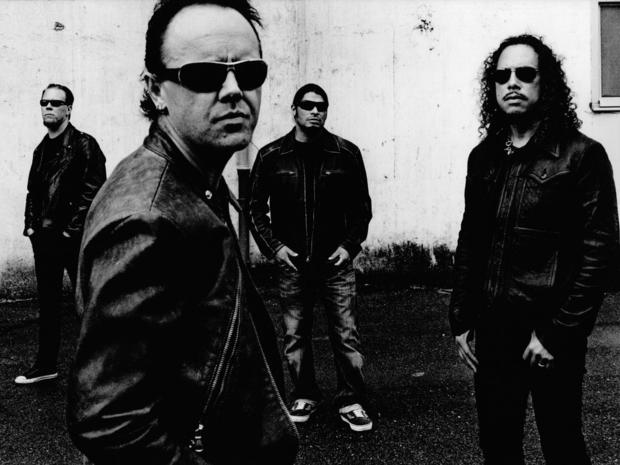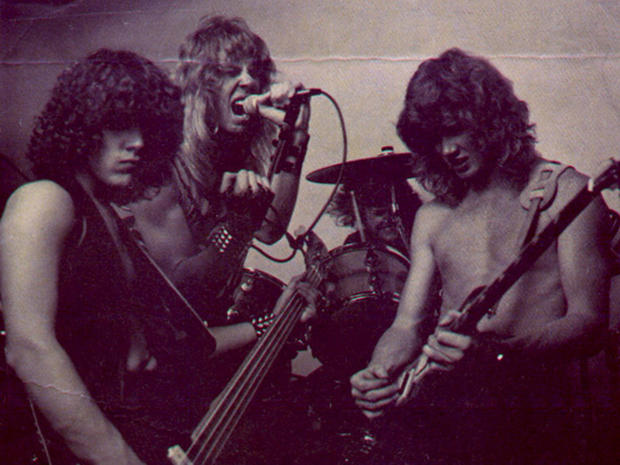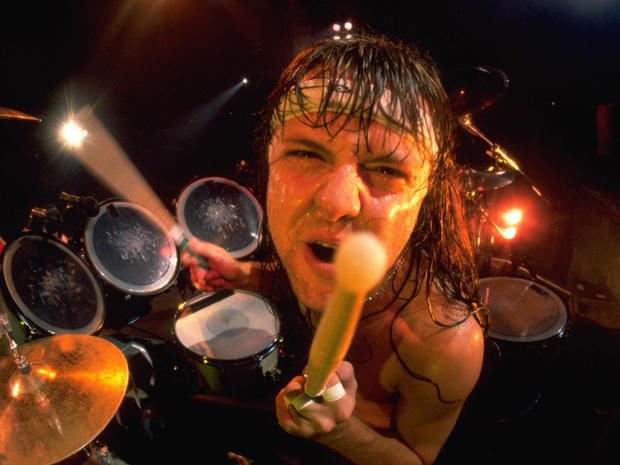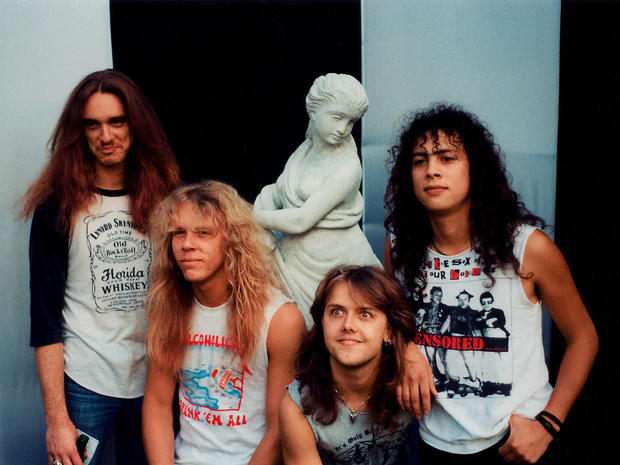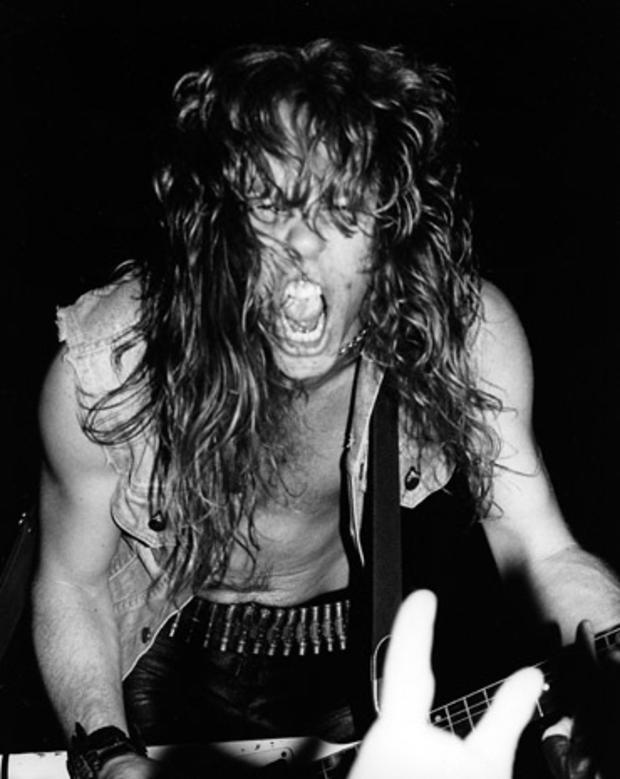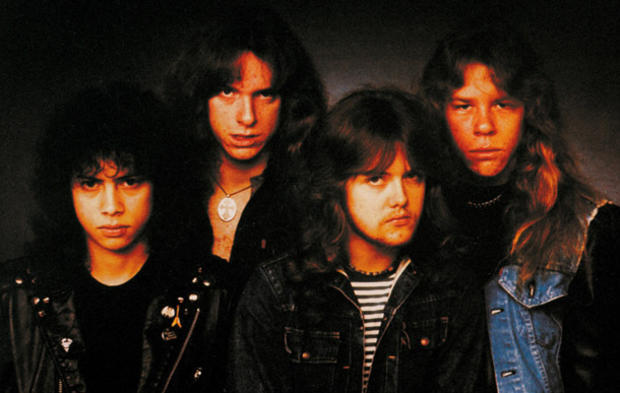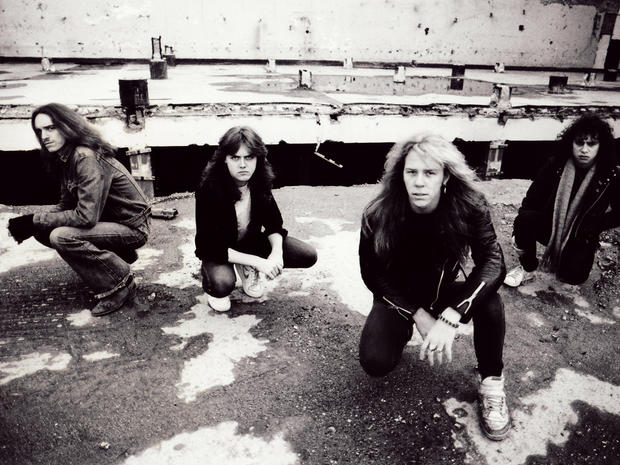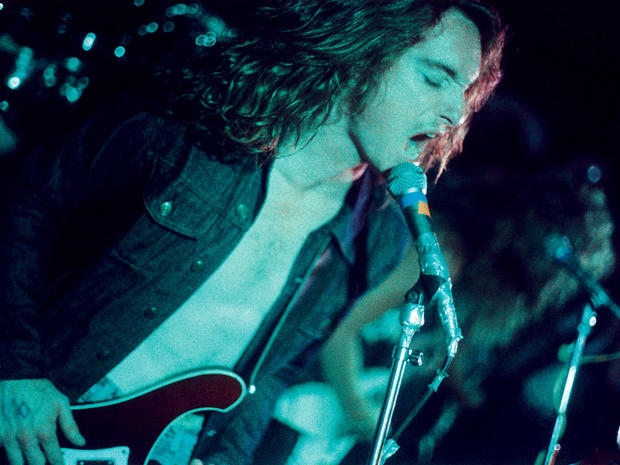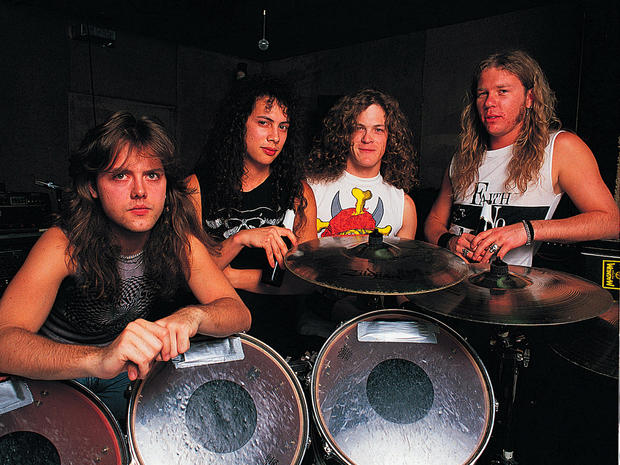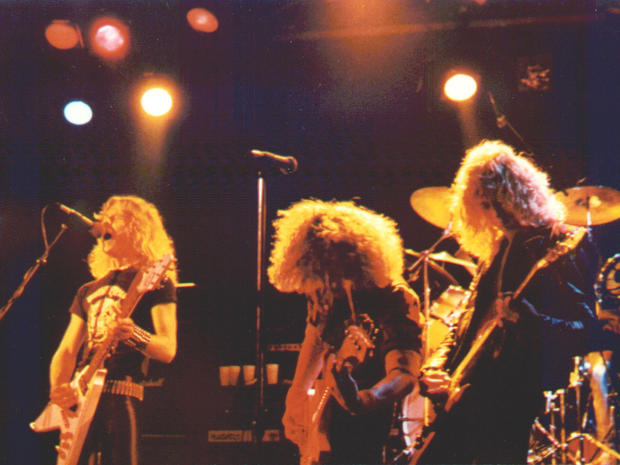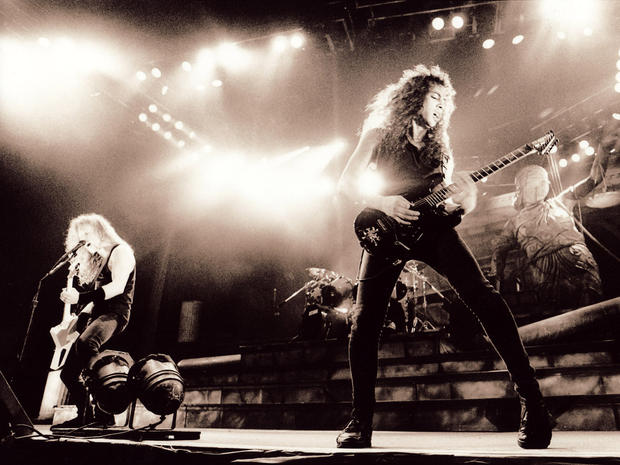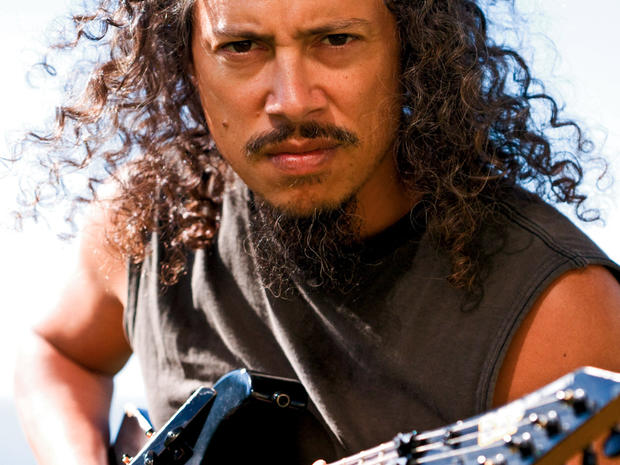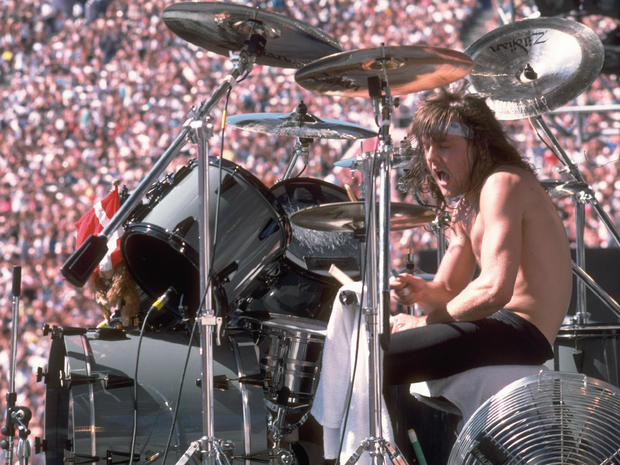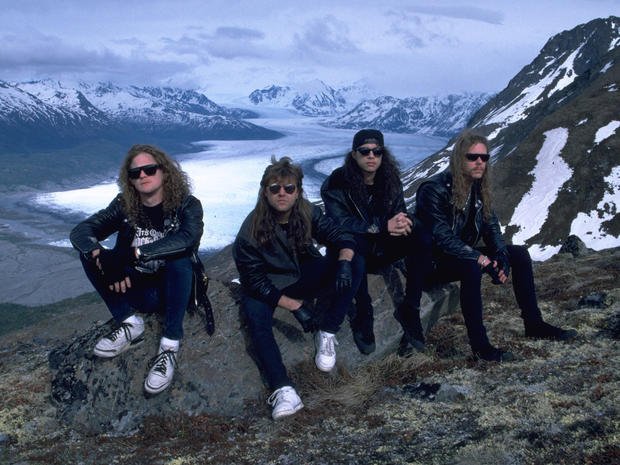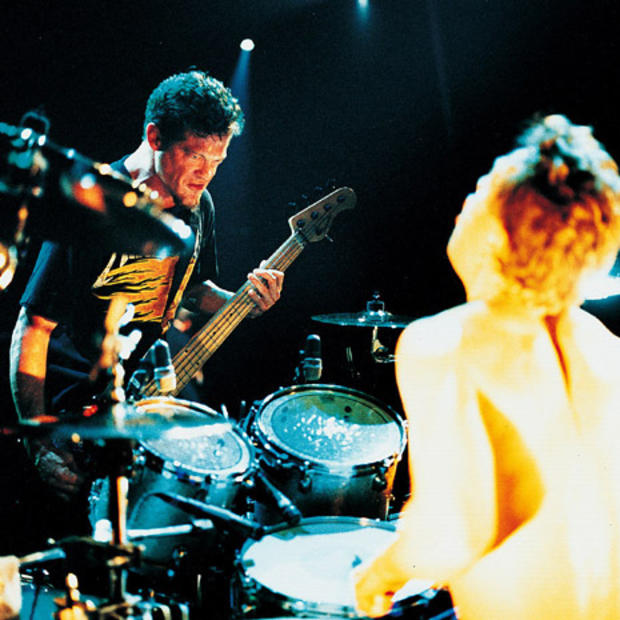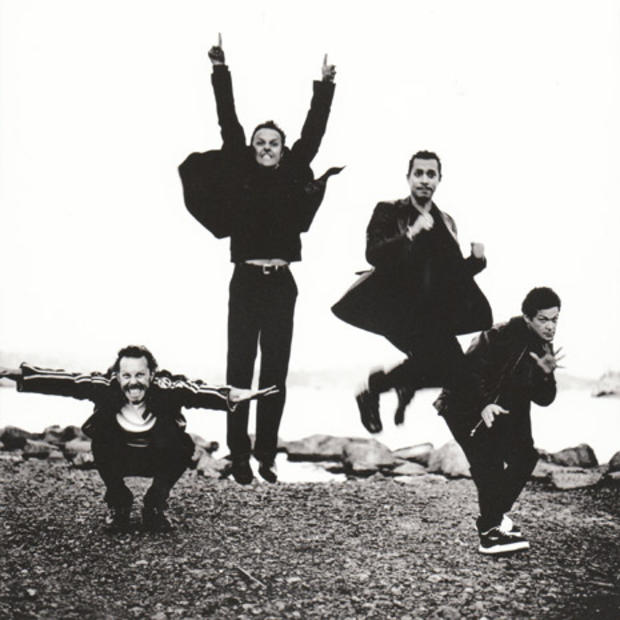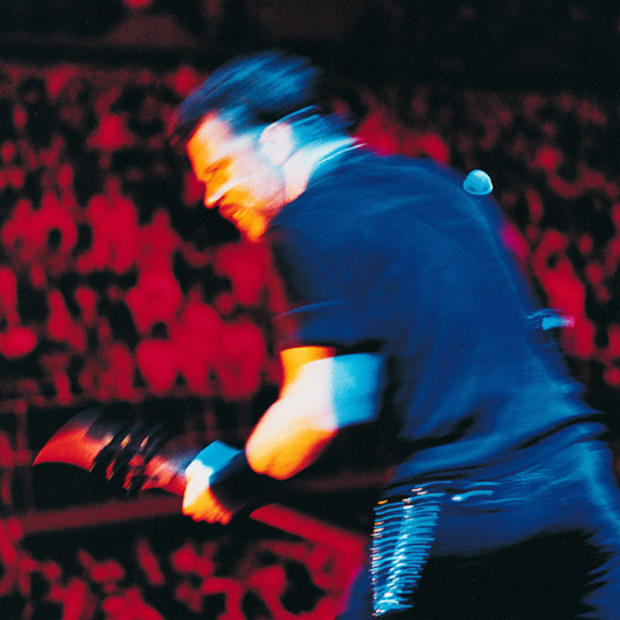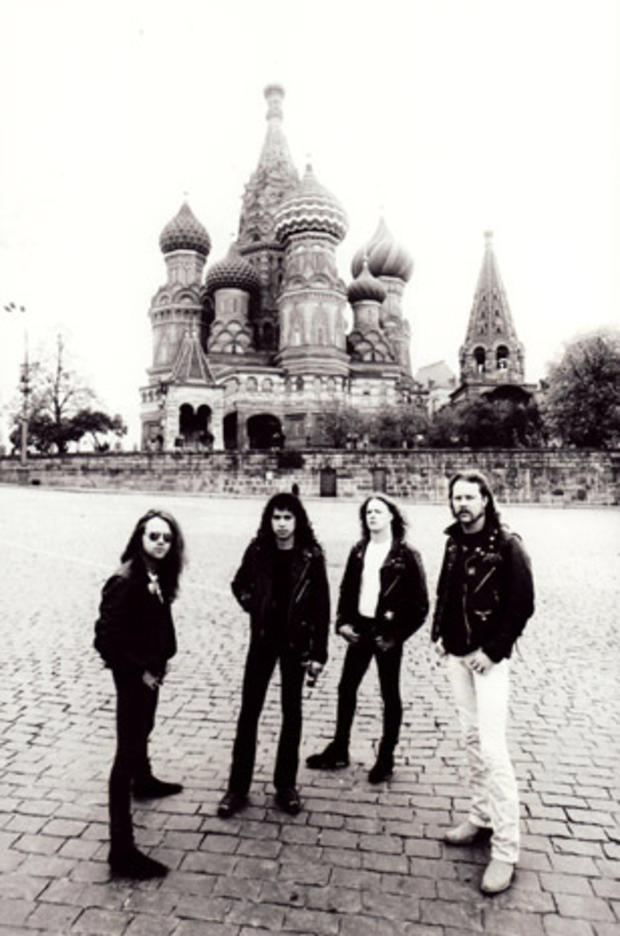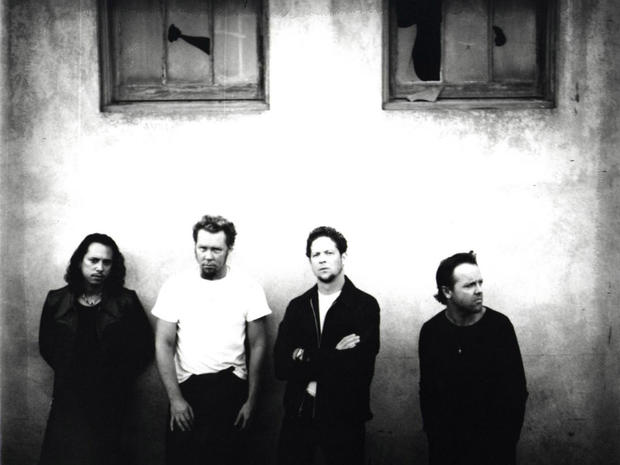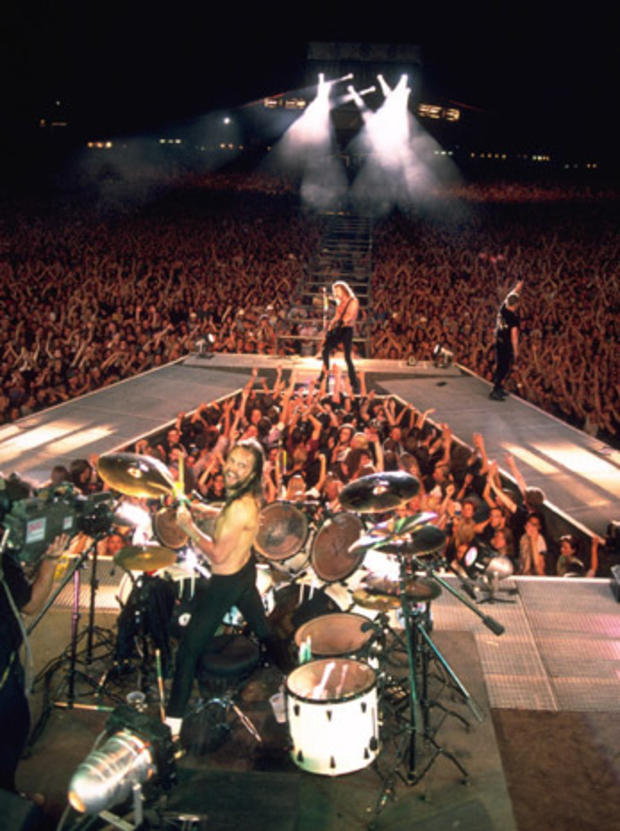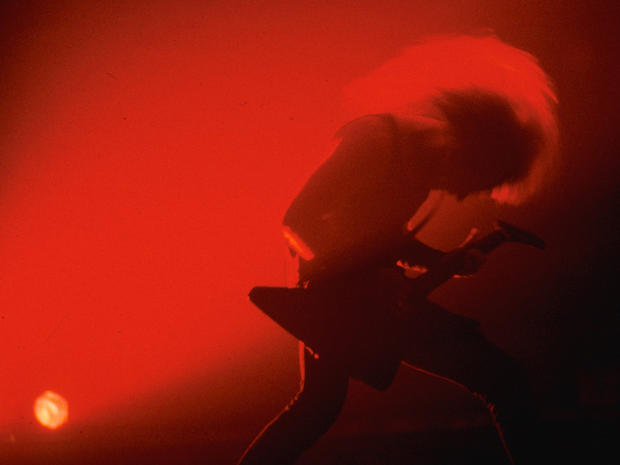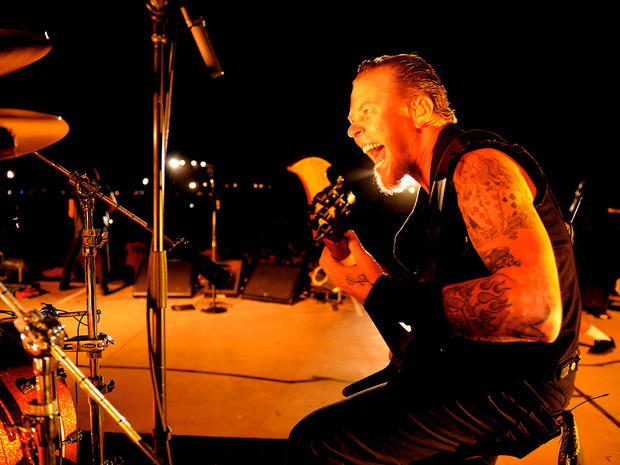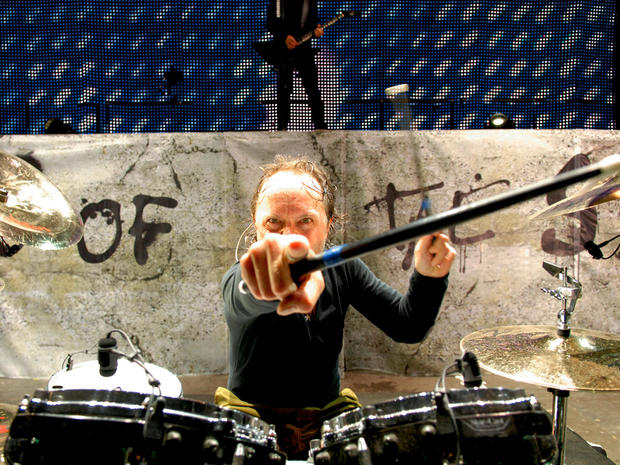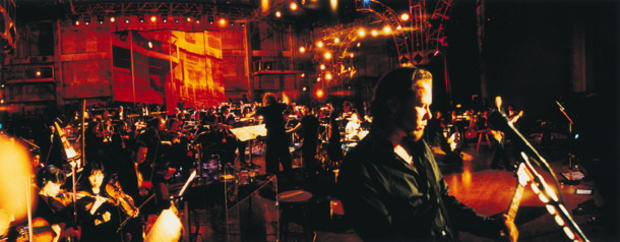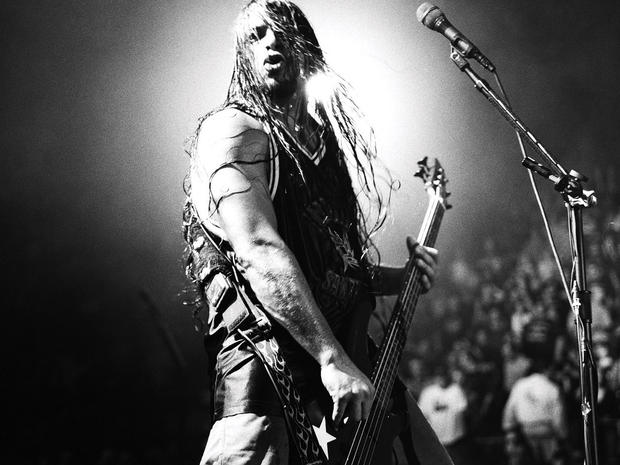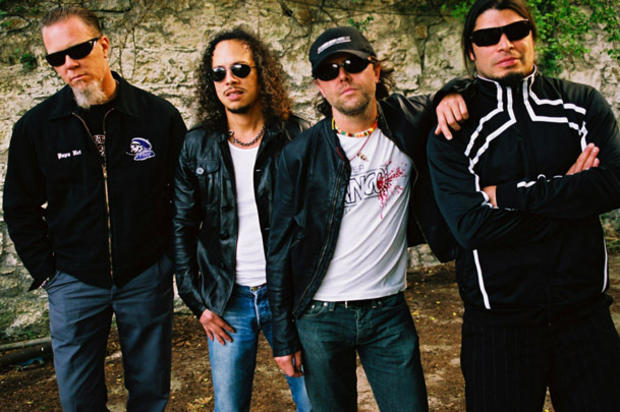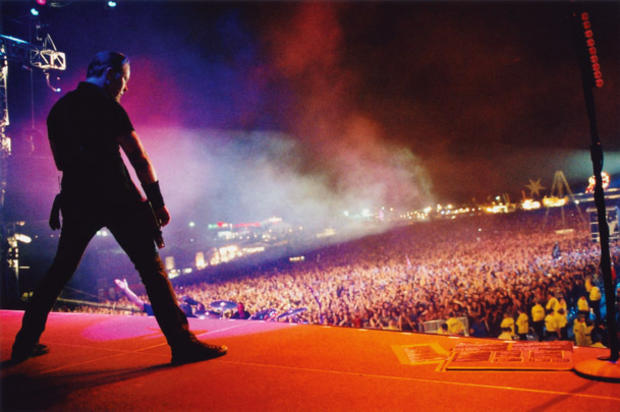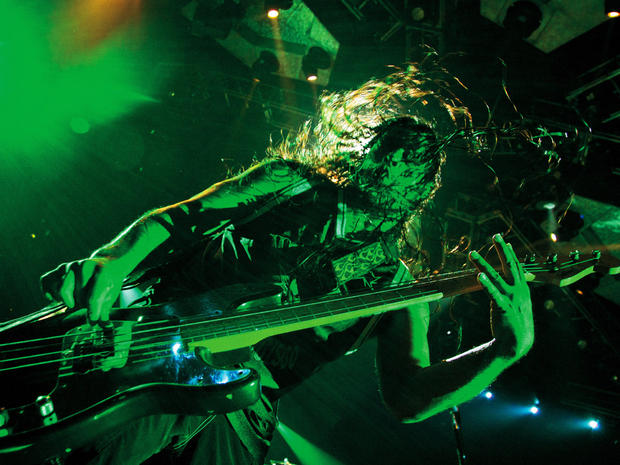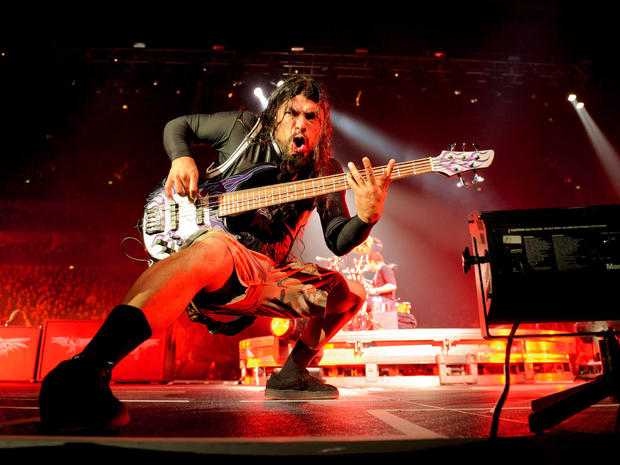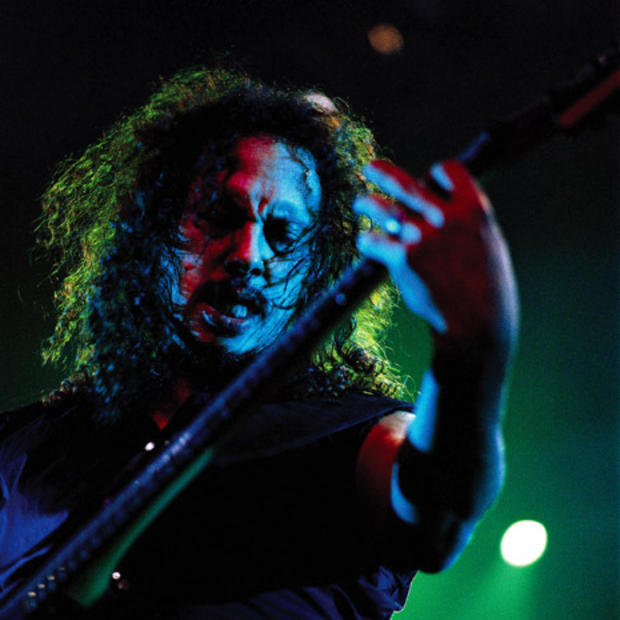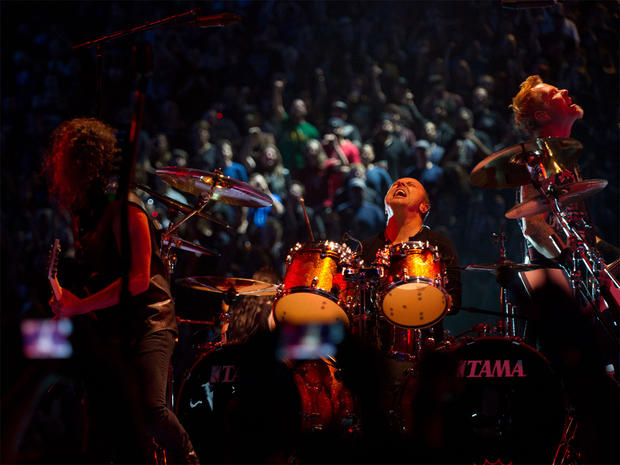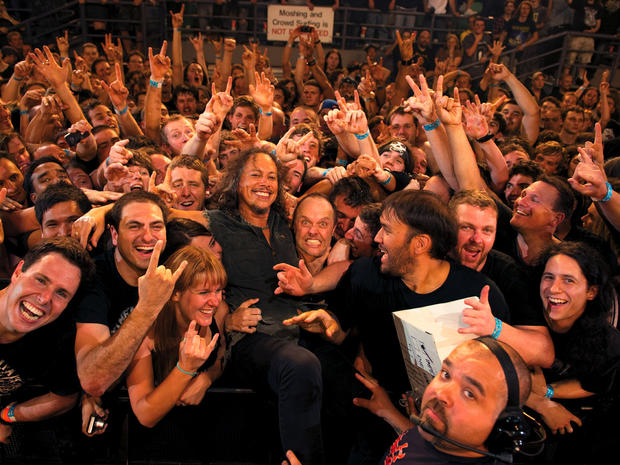Metallica
The colossus of heavy metal, Metallica is one of the most successful bands of all time, with eight Grammys, five straight-to-Number-1 albums, and 110 million records sold.
By CBSNews.com senior producer David Morgan
Left: An early photo of original bassist Ron McGovney, guitarist James Hetfield, drummer Lars Ulrich and guitarist Dave Mustaine of Metallica. Mustaine would leave the group to form another heavy metal band, Megadeth.
The Danish-born Ulrich was originally planning to follow in his family's footsteps and become a tennis player. In 1973 in Copenhagen, players at a tournament were given free tickets to a Deep Purple concert. Ulrich, then nine, was "grabbed and taken to the concert," he told Anthony Mason.
"I saw lots of energy, spectacle. I saw something that was larger than life and something that seemed to unite the 3,000 or 4,000 people that were there into one. I'd never experienced anything like that before, but I knew that I wanted to be part of it."
"I loved tennis, and I loved music. I was so passionate about both. Music was sort of my escape away from the discipline of tennis."
Burton was brought on as bassist in 1982 to replace Ron McGovney. In 1983 Hammett joined, after Dave Mustaine was fired from the group.
Hetfield told Anthony Mason that in the early days the group went viral via cassette. "Once we started doing more and more local gigs, the tape trading thing was huge. That was a way of getting your music out, just like it is now on YouTube or whatever. You're able to get your music out there now, very easily. Back then it was, you'd make a demo on a cassette, you'd send it to the core people, they would network. You know, 'Hey, I sent it to my friend in Holland. He sent it to his friend in Germany who sent it on to --' and all of a sudden it just spread.
"It was doing its own work, 'cause everyone wanted to know the next cool band. There was a mystique about, 'What? They're from L.A.? And they play this kind of music? No way! Are you sure they're not from Europe?'"
Burton played on the group's first three albums -- "Kill 'Em All," "Ride the Lightning," and "Master of Puppets" -- before being killed in an accident in Sweden in 1986, when the band's bus turned over on a highway.
"Death, at that time, was something that was so surreal, so foreign," said Ulrich. "And when it did happen I don't think any of us dared look at it in the eyes."
Hetfield said the biggest break for the band came when they supported Ozzy Osbourne on the former Black Sabbath player's "Shot in the Dark Tour" in the mid-1980s.
"We toured the States with Ozzu Osbourne, opening up. And that was where we grasped a lot of fans. Obviously a lot of heavy metal fans were there from the Sabbath days and Ozzy's music. And so our fan base increased rapidly on that tour."
The band was rattled by the departure in 2001 of Newsted. "When Jason left, we were not equipped to fully comprehend why," said Ulrich. " 'Why would Jason leave the biggest band in the world?' Then the cameras were rolling and, all of a sudden, life as we know it melted down."
It was all captured in the documentary, "Some Kind of Monster." It got so ugly the band's management called in a therapist.
"You guys are part of probably the most famous therapy session in rock 'n' roll," said Mason.
"Cool . . . I guess," laughed Hetfield.
"Somebody who works with you, who works with bands a lot, said to me you're the hardest working band they've ever worked for," said Mason.
"That's good to hear," replied Hetfield. "We expect that from ourselves. I know there's a perfectionist part that can beat you down, but has also got us to where we are. And we attract that kind of personality in a crew member, in a fan, in a business partner. We attract a similar style of work ethic, and don't like to hear the word 'no.' And we treat people with respect that way as well. You work hard for us, and you get a lot of the benefits that the family has to offer."
"My first gig was at San Quentin State Penitentiary," Trujillo told Anthony Mason. "So that gives you an idea of -- it's like, 'Welcome to Metallica. You're gonna play a prison.'"
"We have not been afraid of evolution," Hetfield told Mason. "I think in this business, especially in this genre of heavy metal, you're not really supposed to evolve or morph or accept change. And we have. We've always gone against the grain in pretty much everything we've done.
"So even within the heavy metal community, cutting your hair was one, writing a ballad -- there's been all of these things along the way that have broken that mold. So we are a different band."
"We've allowed ourselves to mature," said Hetfield. "You're not really supposed to grow up in this business and show your gray hairs, show your age, show your weaknesses; [we're] coming to terms with that. And the more honest we are about that to ourselves, the longer we can go."
For more info:
metallica.com
"Metallica Through the Never" (Official website)
By CBSNews.com senior producer David Morgan
